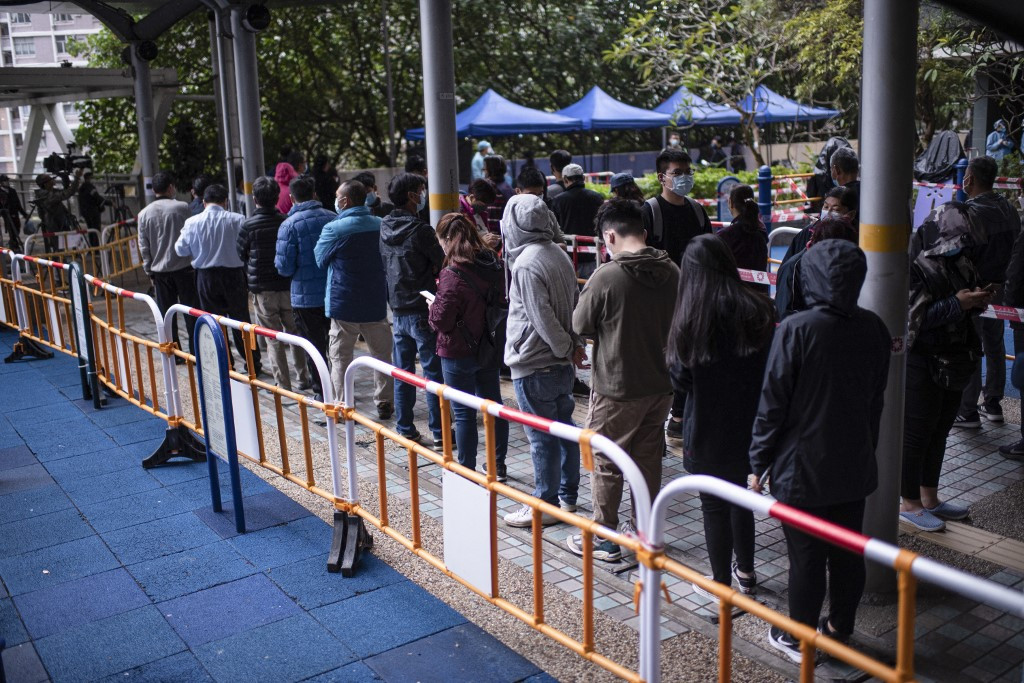Popular Reads
Top Results
Can't find what you're looking for?
View all search resultsPopular Reads
Top Results
Can't find what you're looking for?
View all search resultsDo not turn the page on COVID-19: We are not there yet
We, the special envoys of the World Health Organization (WHO) director general on COVID-19, have watched with some dismay as the world attempts – too soon, in our opinion – to “get back to normal”.
Change text size
Gift Premium Articles
to Anyone
I
n recent weeks, countries around the world have rushed to dismantle many of the public health measures and much of the infrastructure that has done so much to reduce the spread of COVID-19 and to protect us from the disease and its complications and lower the death toll over the past two years.
The most-effective and easiest public health measures to implement – such as social distancing, mask-wearing, hand washing and management of public venues where people congregate – have, in many places, simply been relaxed or even stopped.
Just as worrying is that we are also seeing governments cut back on testing, contact tracing and surveillance. Whatever the reasons may be – an impression that we are past the worst, that these measures are too exhaustive and expensive, or that money may be saved or better spent elsewhere – these decisions are premature, they are wrong and they are misleading to the general public.
The absence of surveillance, and of analysis of the virus, is leaving us blind: we simply do not know which variants are circulating, where, and to what extent and they are exposing all of us, and especially the most-vulnerable, to severe disease and death, especially if not vaccinated.
This amounts to handicapping ourselves. We are, almost certainly, setting ourselves up for more emerging variants, undetected spread, severe disease and fatal outcomes.
We, the special envoys of the World Health Organization (WHO) director general on COVID-19, have watched with some dismay as the world attempts – too soon, in our opinion – to “get back to normal”.
Doing so is already having significant consequences and these could yet be disastrous.
Even now, the world is still seeing 50,000-70,000 COVID deaths per week. Our public health actions have consequences, always.
As public health measures are dismantled and as immunity against the virus wanes (both in vaccinated populations and in those with natural immunity), the vulnerabilities increase and we are going to see more and more cases and more and more deaths.
Indeed, in WHO’s European region already, we have seen cases tick up in several countries over the past 2 weeks. We have seen how COVID-19 is ravaging Hong Kong and other places in Asia – where many people have not even had their full initial course of vaccination. Hospitals there are overwhelmed, unable to cope and unable to help the most-severely affected.
We believe this trend will continue and that it could even accelerate.
Large parts of the world are leaving themselves vulnerable to these upsurges in cases and deaths. And we will not know the extent to which the virus is circulating or even if new, potentially more deadly variants, are replacing existing ones.
And we will not be protecting our people, if there are no longer masking, social distancing or other hygiene measures in place.
Acting as if the pandemic is over is actually inviting it back into our lives, allowing it to hit us just as hard, harder even, than the first time around. We must adapt to life post-pandemic gradually and based on science.
We, the WHO special envoys for COVID-19, call on the world therefore – no, we implore those who can make a difference, and that means everyone, whether on a decision-making, societal or individual level – to act now, before the situation explodes.
Let us not take our eyes off the ball. It is tempting to do so, of course. Every country, every government has competing priorities and demands which they feel have been neglected. They are feeling the strain on their economies. And, in Europe in particular, there is now the specter of armed conflict which is inevitably drawing attention away from COVID-19.
But COVID-19 is still there and everything that was true of the disease in the early part of the pandemic remains true today. It is still deadly. It is still circulating and it can still give rise to the emergence of new variants, some of which may be more transmissible and more deadly than the current strains. They may even be more resistant to current vaccines.
By dismantling all the protections it has taken the world two years to construct, we are putting ourselves and everyone else at grave risk by not continuing to respect this virus and take the necessary protective measures.
Let us call on our communities and on our leaders to ensure this does not happen. With action, and with attention to public health measures, we can avoid many undesirable outcomes.
A less deadly future is in our hands so let us exercise our power to achieve this, together.
***
Maha El Rabbat, former Egyptian health and population minister, and David Nabarro, former special adviser to the United Nations Secretary-General on the 2030 Agenda for Sustainable Development and Climate Change, are WHO director general’s special envoys on COVID-19 preparedness and response. Other special envoys, Mirta Roses, Palitha Abeykoon, and Samba Sow, also signed the article.











